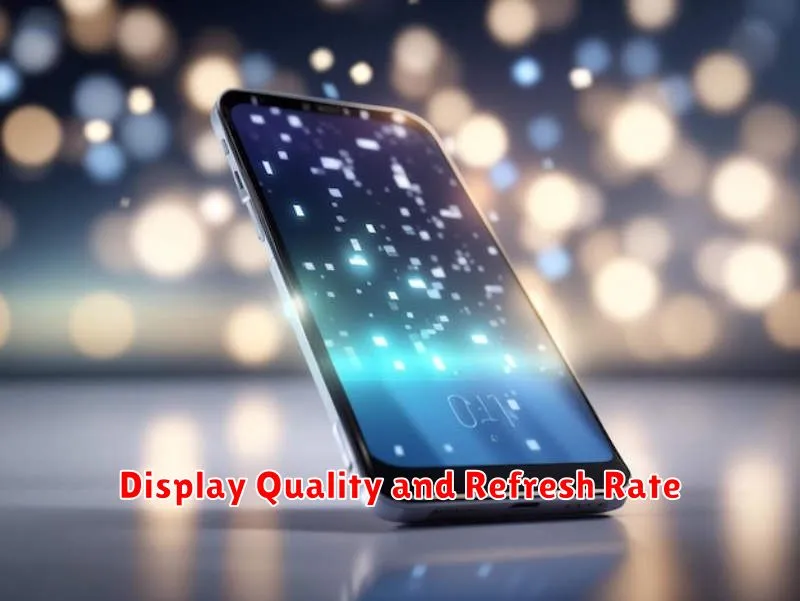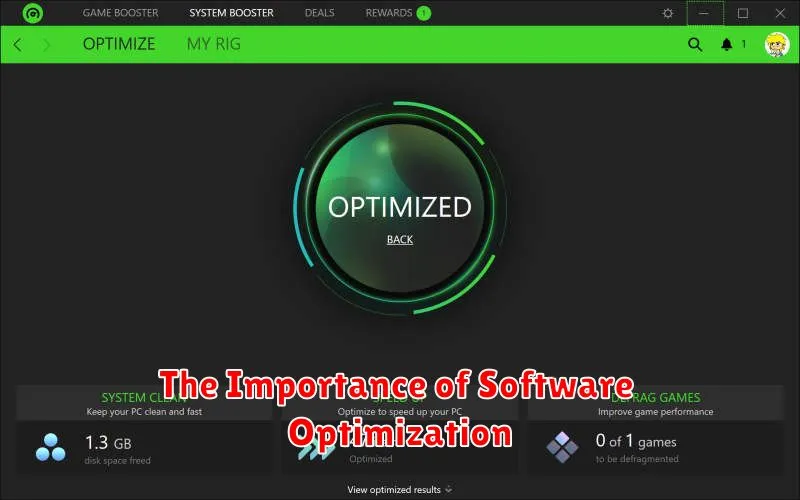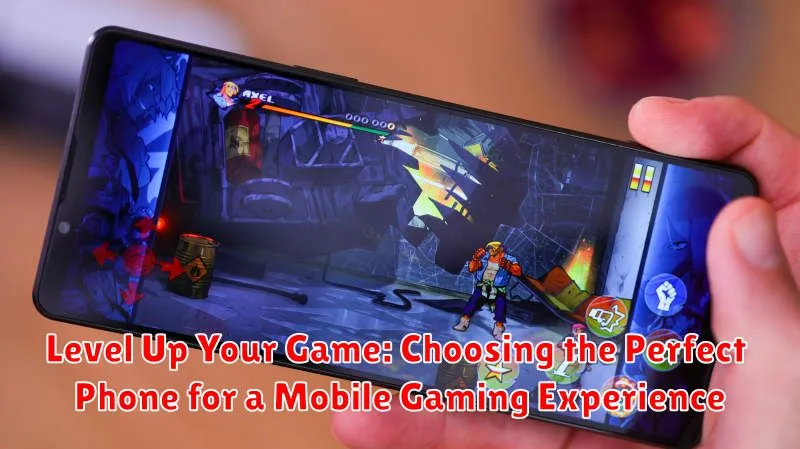In today’s fast-paced digital world, mobile gaming has exploded in popularity, transforming how we experience interactive entertainment. No longer confined to consoles or PCs, immersive gaming experiences are readily available at our fingertips. Choosing the perfect phone for mobile gaming, however, can be a daunting task. This article will guide you through the essential factors to consider, ensuring you level up your game with a device that delivers seamless performance, stunning visuals, and an unparalleled gaming experience.
From powerful processors and ample RAM to vibrant displays and long-lasting battery life, several key specifications contribute to a phone’s gaming prowess. Understanding these components and their impact on gameplay is crucial for making an informed decision. We’ll delve into each of these aspects, empowering you to choose the ideal mobile gaming phone that perfectly matches your gaming style and budget, allowing you to truly level up your mobile gaming experience.
Understanding Key Specs for Mobile Gaming
Selecting the right phone for mobile gaming goes beyond simply choosing a popular brand. A deep dive into key specifications is crucial for a truly enhanced gaming experience. Performance, responsiveness, and visual fidelity are all directly impacted by the underlying hardware.
This section will break down the essential specifications to consider when choosing a gaming-centric phone. Understanding these elements will empower you to make an informed decision and maximize your gaming potential. We’ll explore how each component contributes to the overall experience, allowing you to prioritize the features that best suit your gaming needs.
From the processor’s power to the display’s refresh rate, we’ll unravel the complexities of mobile hardware and how they translate into real-world gaming performance. Choosing the right combination of specifications ensures a smooth, immersive, and ultimately, more enjoyable gaming experience on the go.
Processor Power and Speed
The processor, or CPU, is the brain of your mobile gaming device. A powerful CPU is essential for smooth gameplay, especially with demanding titles. Look for phones with the latest generation processors, as these offer significant performance improvements over older models.
Clock speed, measured in gigahertz (GHz), indicates how fast the processor can execute instructions. Higher clock speeds generally translate to better performance. However, the architecture of the CPU also plays a crucial role. A newer architecture, even with a slightly lower clock speed, can outperform an older architecture with a higher clock speed.
Multi-core processors are standard in modern smartphones. More cores allow the phone to handle multiple tasks simultaneously, improving performance in games with complex AI or physics calculations. Pay attention to the number of cores and their individual clock speeds to get a better understanding of the processor’s capabilities.
RAM and Storage
RAM, or Random Access Memory, plays a crucial role in the performance of mobile games. It acts as the phone’s short-term memory, holding the game data and operating system instructions currently in use. Higher RAM capacity enables smoother multitasking and reduces the likelihood of the game lagging or crashing, especially with demanding titles. A minimum of 6GB RAM is recommended for a decent gaming experience, while 8GB or 12GB is ideal for high-end gaming and seamless multitasking.
Storage capacity determines how many games, apps, and files you can store on your phone. Modern mobile games can consume significant storage space. While 64GB might suffice for casual gamers, 128GB or 256GB is a better choice for avid gamers with large game libraries. Consider whether the phone offers expandable storage via a microSD card if you anticipate needing more space in the future.
The type of storage also impacts performance. UFS (Universal Flash Storage) 3.1 or later offers significantly faster read and write speeds compared to older eMMC storage, leading to quicker game loading times and smoother gameplay. Pay attention to the UFS version when comparing different phone models.
Display Quality and Refresh Rate

A visually stunning and responsive display dramatically enhances mobile gaming. Display quality is determined by factors like resolution, color accuracy, and brightness. A higher resolution, such as 1440p (QHD+) or 2160p (4K), delivers sharper visuals and more detail, making immersive game worlds truly come alive. Accurate color reproduction ensures a vibrant and realistic experience, while high brightness levels improve visibility, especially in brightly lit environments.
Beyond resolution and color, the refresh rate is crucial for smooth gameplay. Measured in Hertz (Hz), refresh rate indicates how many times the screen updates per second. A higher refresh rate, like 90Hz, 120Hz, or even 144Hz, results in smoother animations, reduced motion blur, and improved responsiveness. This is particularly important in fast-paced games where quick reactions are vital. A higher refresh rate allows you to see enemy movements more clearly and react faster, giving you a competitive edge.
Battery Life and Charging Speed
Battery life is a crucial factor for mobile gamers. Extended gaming sessions can quickly drain a phone’s battery, interrupting gameplay. Look for phones with larger battery capacities, measured in milliampere-hours (mAh). A higher mAh generally translates to longer playtime.
Charging speed is equally important. Fast charging technologies allow you to quickly top up your battery during short breaks. Consider phones that support fast charging and check the wattage (W) supported by the charger. Higher wattage means faster charging speeds, minimizing downtime.
Balancing battery capacity with charging speed is key. A large battery provides long gaming sessions, while fast charging ensures minimal interruption when you need to power up.
Cooling Systems
Efficient heat dissipation is crucial for maintaining peak performance during extended gaming sessions. A phone that overheats can experience performance throttling, leading to lag and a subpar gaming experience. Modern gaming phones employ various cooling solutions to combat this issue.
Some devices utilize vapor chamber cooling, which uses a small amount of liquid that vaporizes and condenses to transfer heat away from the processor. Other methods include copper heat pipes or multi-layered graphite sheets to spread heat across a larger surface area, allowing for more efficient cooling.
Look for phones that emphasize their cooling technology, especially if you plan on playing graphically intensive games for extended periods. Advanced cooling systems can make a significant difference in maintaining consistent frame rates and preventing performance drops.
Ergonomics and Design
Comfort is paramount during long gaming sessions. A phone’s size and weight significantly impact how it feels in your hands. A phone that’s too large or heavy can lead to fatigue and cramping. Conversely, a phone that’s too small might make it difficult to accurately press on-screen controls.
The placement of buttons, including power and volume keys, can also affect gameplay. Ideally, these buttons should be positioned to avoid accidental presses during intense moments. Consider phones with features like curved backs and textured grips for added comfort and security.
The overall design of the phone should complement your gaming style. Some phones feature dedicated gaming modes with enhanced interfaces and optimized performance. Look for phones with features designed for comfortable and extended gameplay.
The Importance of Software Optimization

Beyond the hardware specifications, software optimization plays a crucial role in the mobile gaming experience. A phone with top-tier specs can still underperform if the software isn’t optimized for gaming.
Operating System optimizations are key. A streamlined OS uses resources efficiently, leaving more processing power for games. Custom gaming modes or launchers can further enhance performance by prioritizing game processes and minimizing background activity.
Game developers also contribute to software optimization. Games that are well-optimized for specific hardware will run smoother and offer better frame rates, even on less powerful devices. Look for games that actively support and update their software for different phone models.
Finally, consider the software features offered by the manufacturer. Some phones include dedicated game boosters, performance managers, and temperature control features that can significantly improve the gaming experience. These features help manage resources, prevent overheating, and maintain consistent frame rates during extended gameplay sessions.
Price Considerations
Budget plays a crucial role in selecting a gaming phone. Prices range significantly, from budget-friendly options to premium flagship devices. Determining a comfortable price range beforehand will help narrow down the choices.
Value is another important aspect to consider. A higher price doesn’t always guarantee the best gaming experience. Look for phones that offer a good balance of performance and features within your budget. Comparing specifications and reviews can help identify the best value proposition.
Long-term costs should also be factored in. Some manufacturers offer extended warranties or accessories bundles that can affect the overall cost. Consider whether these additions are necessary or if a standalone phone purchase is more suitable.

